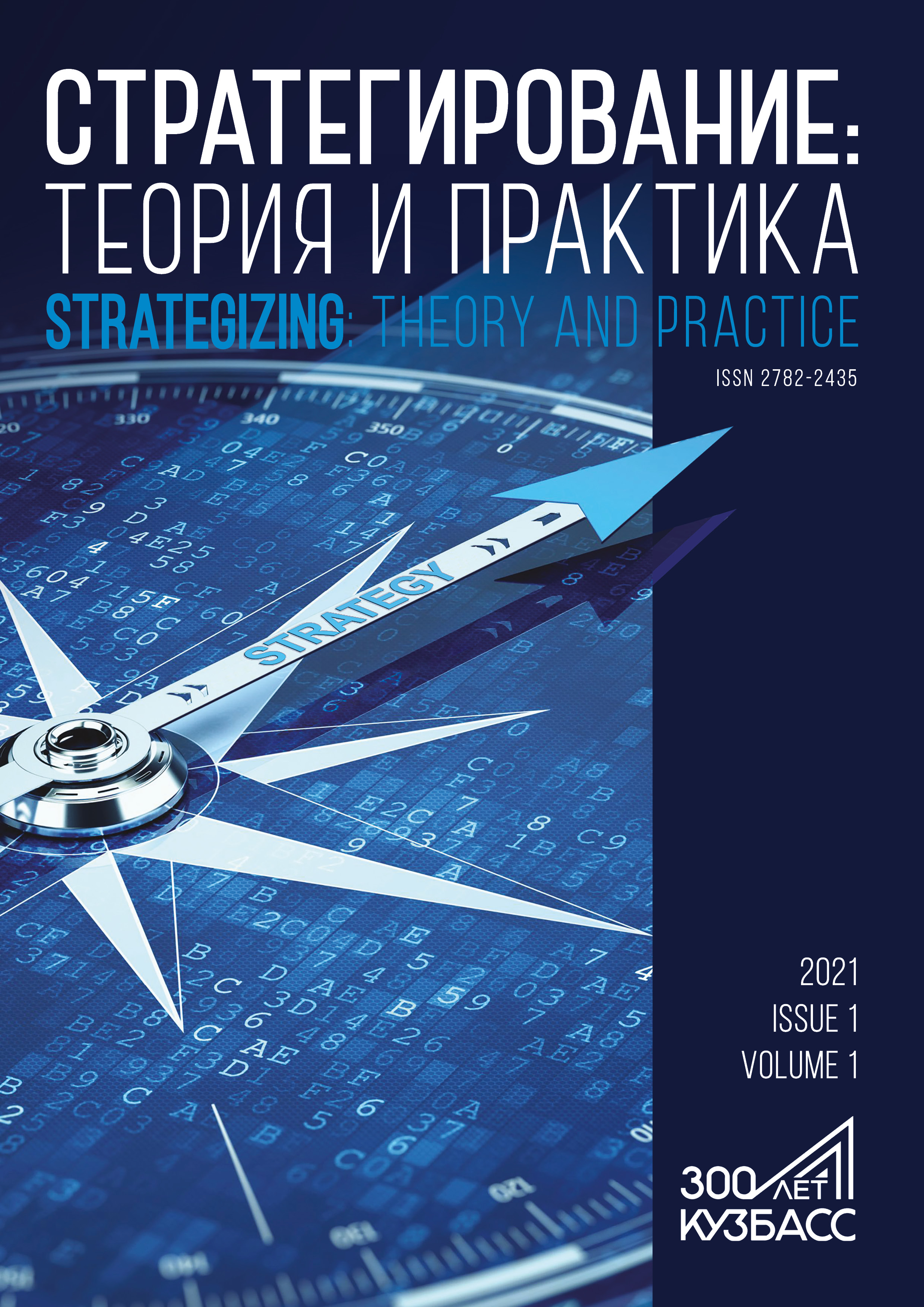Bishkek, Russian Federation
Bishkek, Russian Federation
Strategic management allows business to respond to the changes that occur in the markets, science, technology, economy, society, and politics. Poor strategic management puts the organization at risks and deprives it of the ability to predict and make plans, thus dooming it to short-term, on-the-spur-of-the-moment, or belated decisions. In a highly competitive and dynamic environment, organizations must develop a long-term strategy in order to keep pace with the external changes. In practice, many organizations act as if the environment were permanent, and lose competitive advantage. To be a market leader, the company should be able to predict external changes, design a proper strategy, determine competitive advantages, and avoid strategic risks. Strategy development is unique for each organization and depends on its market position, developmental rate, potential, competitors, products and services, the current state of economy, cultural environment, etc. This research featured the case of mobile provider “O!” (OsOO NUR Telecom, Kyrgyzstan).
strategic management, strategy, competitiveness, organization, competitive advantages, managers
1. Dulevich LI. Strategic management of development of the enterprise in market conditions. Agrarnoe obrazovanie i nauka [Agricultural Education and Science]. 2016;(4). (In Russ)
2. Kvint VL. Vglyadyvayasʹ v budushchee: izyskaniya prorokov, predskazateley, liderov i strategov [Looking to the future: Prophets, soothsayers, leaders, and strategists]. St. Petersburg: RANEPA; 2018. 28 p. (In Russ.)
3. Kvint VL. Globalʹnyy formiruyushchiysya rynok - vliyanie na strategiyu Rossii i strategicheskoe razvi-tie rossiyskikh kompaniy [Global emerging market - impact on Russian strategy and strategic develop-ment of Russian companies]. Ehffektivnoe antikrizisnoe upravlenie [Effective Crisis Management]. 2012;72(3):50-61. (In Russ.)
4. Kvint VL. To the analysis of the formation of a strategy as a science. Vestnik TSEHMI [Bulletin of the Central Institute of Economics and Mathematics]. 2018;(1). (In Russ.) https://doi.org/10.33276/S0000121-6-1
5. Kvint VL. The concept of strategizing. Kemerovo: Kemerovo State University; 2020. 170 p. (In Russ.) https://doi.org/10.21603/978-5-8353-2562-7
6. Kvint VL. Kontseptsiya strategirovaniya. T. 1 [The concept of strategizing. Vol. 1.]. St. Petersburg: SZIU RANKhiGS; 2019. 132 p. (In Russ.)
7. Kvint VL. Theoretical basis and methodology of strategizing of the private and public sectors of the Kuzbass region as a medial subsystem of the national economy. Russian Journal of Industrial Econom-ics. 2020;13(3):290-299. (In Russ.) https://doi.org/10.17073/2072-1633-2020-3-290-299
8. Kvint VL. Theory and practice of strategizing. Tashkent: Tasvir; 2018. 160 p. (In Russ.)
9. Kocherbaeva AA, Samaibekova ZK, Zholoochuev MZh. How does success of organization depend from strategy? Science, New Technologies and Innovations in Kyrgyzstan. 2017;(6):86-88. (In Russ.)
10. Samaybekova ZK. Features of realization of strategic changes in organization. Vestnik KRSU. 2017;17(11):68-70. (In Russ.)
11. Churilov IN. Strategic management as a basis for the maintenance of the competitiveness of the com-pany. Obrazovanie i nauka bez granits: sotsialʹno-gumanitarnye nauki [Education and Science without Borders: Social Sciences and Humanities]. 2016;(5):110-114. (In Russ.)
12. Samaibekova Z, Choyubekova G, Isabaeva K, Samaibekova A. Corporate sustainability and social re-sponsibility. E3S Web of Conferences. 2021;250. https://doi.org/10.1051/e3sconf/202125006003
13. Kocherbaeva A, Samaibekova Z, Isabaeva K. Leadership and leaders in successful small and medium enterprises. Advances in Social Science, Education and Humanities Research. Vol. 359. Atlantis Press; 2019. pp. 89-94. https://doi.org/10.2991/icsbal-19.2019.17
14. Samaibekova Z, Zaid SSM, Molchanova A, Rybakova A. Managing the intellectual potential in the higher education system. Terra Economicus. 2019;17(4):174-189. https://doi.org/10.23683/2073-6606-2019-17-4-174-189
15. Samaibekova Z, Kocherbaeva A. Leveraging universally desirable and undesirable leadership styles. Advances in Social Science, Education and Humanities Research. Vol. 359. Atlantis Press; 2019. pp. 30-34. https://doi.org/10.2991/icsbal-19.2019.7






